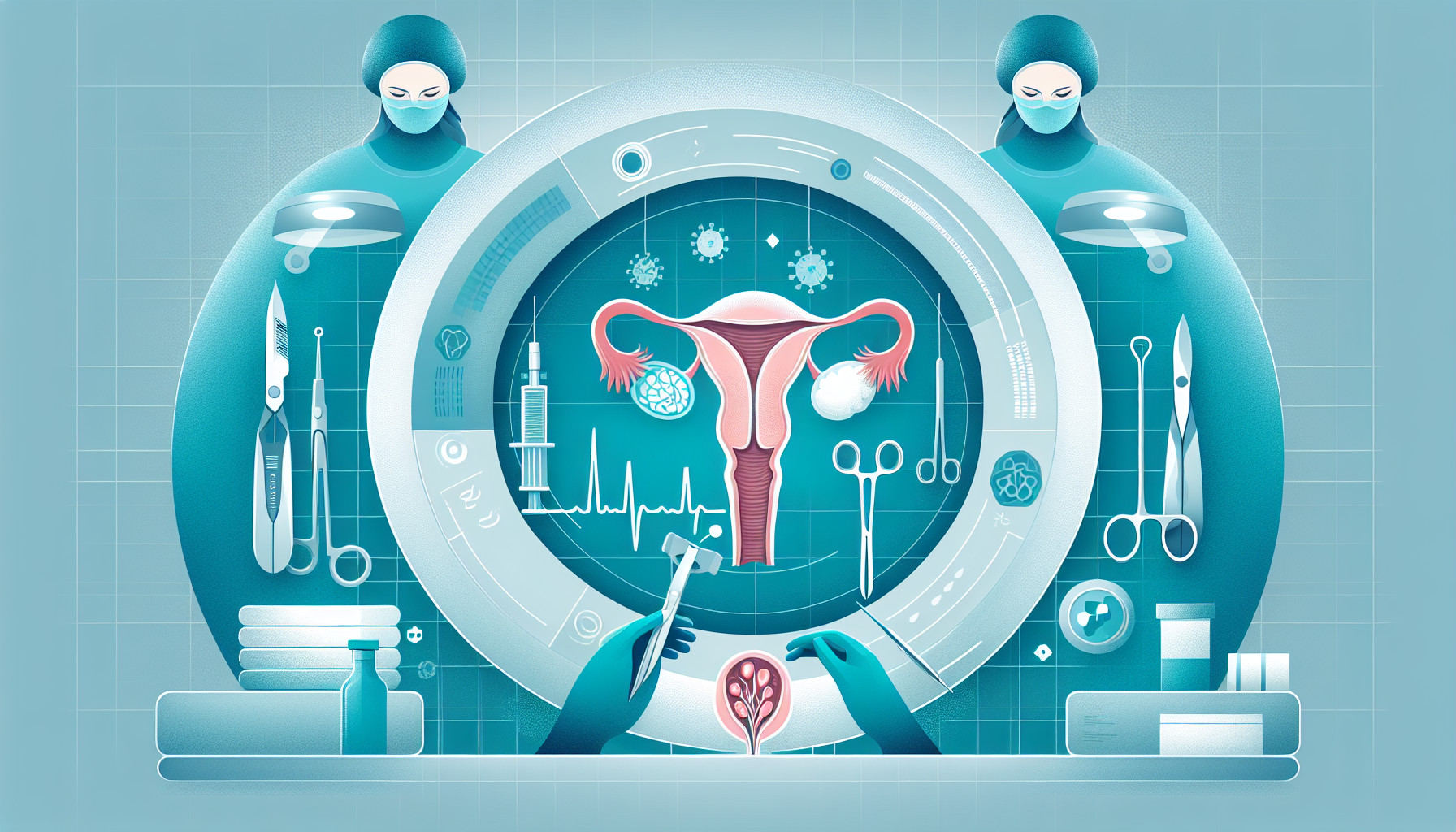Our Summary
This research paper discusses a rare type of abnormal pregnancy where both a normal and an ectopic pregnancy (where the embryo attaches outside the womb) occur at the same time, along with a large ovarian cyst. This situation can be life-threatening for both the mother and the baby inside the womb.
The paper describes the case of a 30-year-old woman who was eight weeks pregnant and had this condition. Doctors used a minimally invasive surgical method to remove the ectopic pregnancy while preserving the normal pregnancy and the ovarian cyst.
In terms of treatment, the paper suggests different approaches depending on the woman’s fertility needs. If the woman doesn’t want more children, the doctors should remove the ectopic pregnancy, the ovarian cyst, and the normal pregnancy. If the woman wants more children, the doctors should remove the ectopic pregnancy but preserve the normal pregnancy. The ovarian cyst can be drained repeatedly under ultrasound guidance and removed after the baby is born.
The paper emphasizes the importance of early diagnosis of this condition during routine pregnancy check-ups to prevent serious complications.
FAQs
- What is the recommended treatment for a woman with an ectopic and normal pregnancy along with a large ovarian cyst who wants more children?
- How important is early diagnosis in preventing serious complications in cases of concurrent normal and ectopic pregnancies with a large ovarian cyst?
- What is the minimally invasive surgical method used to treat a woman with both a normal and ectopic pregnancy and a large ovarian cyst?
Doctor’s Tip
One helpful tip a doctor might give a patient about ovarian cyst removal is to follow post-operative care instructions carefully to ensure a smooth recovery. This may include taking prescribed pain medication, avoiding strenuous activities, and attending follow-up appointments with your healthcare provider. It is also important to monitor for any signs of infection or complications and to seek medical attention if any concerns arise. By following these recommendations, patients can help promote healing and reduce the risk of complications following ovarian cyst removal surgery.
Suitable For
In general, patients who may be recommended for ovarian cyst removal include those who have:
- Large cysts that are causing symptoms such as pelvic pain, bloating, or pressure
- Cysts that are at risk of rupture or torsion (twisting)
- Cysts that are suspected to be cancerous or are causing abnormal growth
- Cysts that persist or grow larger over time
- Cysts in postmenopausal women, as they have a higher risk of being cancerous
Ultimately, the decision to recommend ovarian cyst removal will depend on the individual patient’s symptoms, the size and type of the cyst, the risk of complications, and the patient’s fertility desires. It is important for patients to consult with their healthcare provider to discuss their specific situation and determine the best course of action.
Timeline
Before ovarian cyst removal:
- Patient experiences symptoms such as pelvic pain, bloating, and irregular menstrual cycles.
- Patient undergoes imaging tests, such as ultrasound or MRI, to confirm the presence of an ovarian cyst.
- Doctors monitor the cyst to determine if it is growing or causing any complications.
- If the cyst is deemed large or causing symptoms, doctors recommend surgical removal.
After ovarian cyst removal:
- Patient undergoes minimally invasive surgery to remove the ovarian cyst.
- Recovery time varies depending on the size of the cyst and the surgical method used.
- Patient may experience some discomfort and fatigue after surgery.
- Follow-up appointments are scheduled to monitor the patient’s recovery and ensure no complications arise.
- Patient’s symptoms such as pelvic pain and irregular menstrual cycles improve after the cyst is removed.
- Patient can resume normal activities once fully recovered from surgery.
What to Ask Your Doctor
Some questions a patient should ask their doctor about ovarian cyst removal include:
- What type of ovarian cyst do I have and what are the risks associated with it?
- What are the treatment options for removing the ovarian cyst?
- What are the potential risks and complications of ovarian cyst removal surgery?
- How will the surgery affect my fertility and future pregnancies?
- What is the recovery process like after ovarian cyst removal surgery?
- Are there any alternative treatments or less invasive procedures available for removing the ovarian cyst?
- How often will I need to follow up with my doctor after the surgery?
- Are there any lifestyle changes or precautions I should take to prevent ovarian cysts in the future?
- Will the removal of the ovarian cyst affect my normal pregnancy if I am currently pregnant?
- What signs or symptoms should I watch out for that may indicate a recurrence of ovarian cysts or complications after the surgery?
Reference
Authors: Kong YY, Chanda K, Ying XY. Journal: World J Clin Cases. 2023 Jun 6;11(16):3864-3869. doi: 10.12998/wjcc.v11.i16.3864. PMID: 37383131
